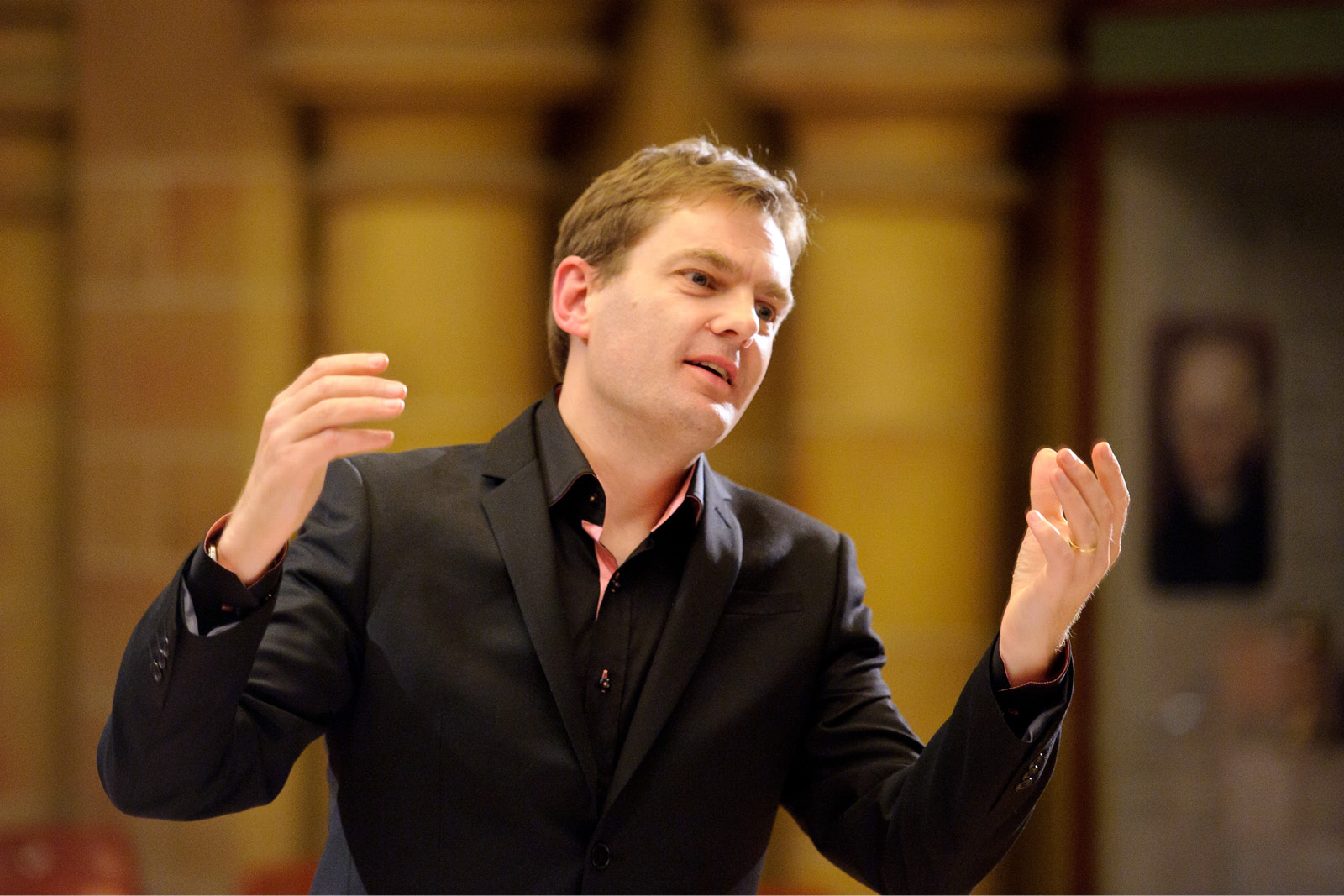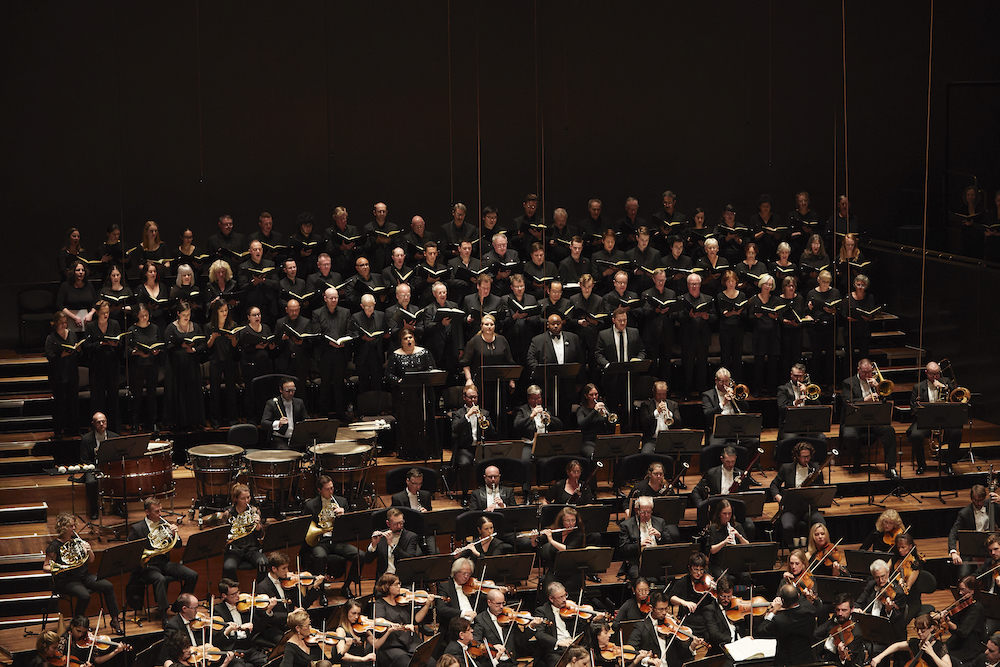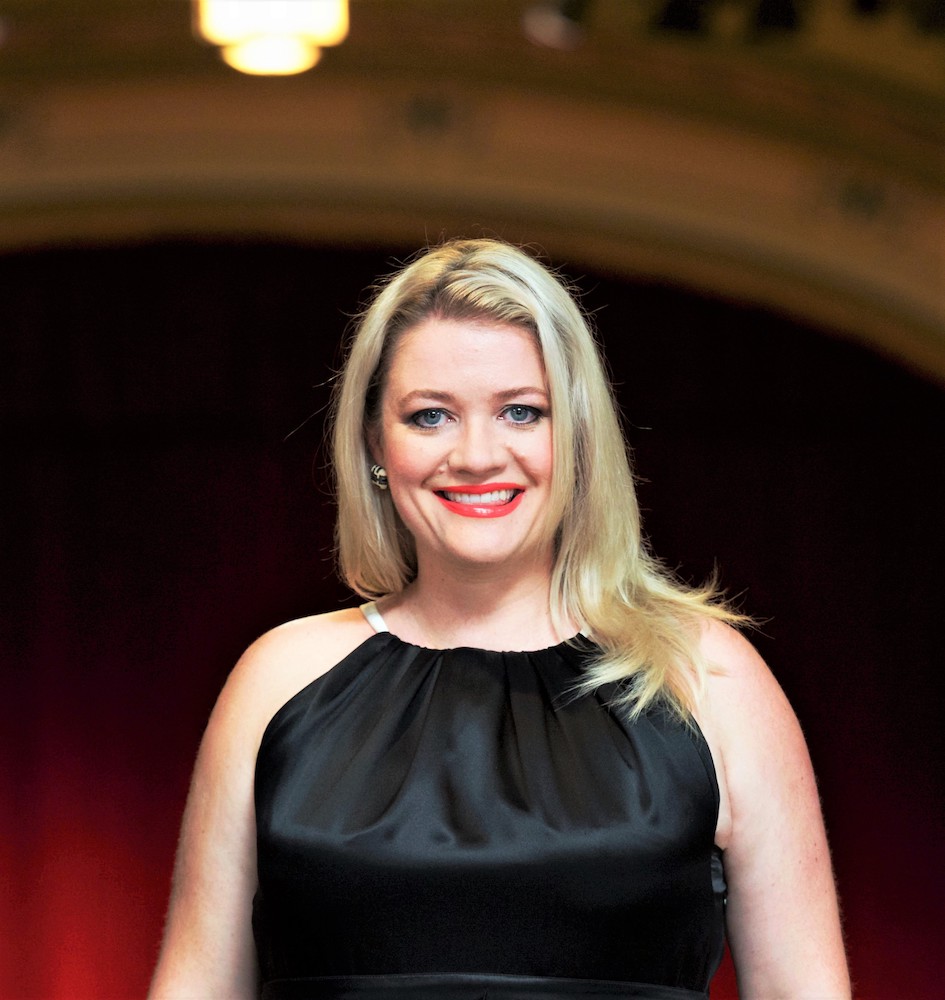Brahms famously described his Ein deutsches Requiem (A German Requiem) as a “human” requiem. “I think it’s a requiem for those living and those who mourn and those that have been left behind,” the Melbourne Symphony Orchestra’s chorusmaster Warren Trevelyan-Jones, who will conduct the MSO Chorus in a version for choir and piano four hands in October, tells Limelight. “I think it’s something that we can all relate to – we all suffer loss, we all suffer hardship, we live in a troubled world.”
 Warren Trevelyan-Jones. Photo courtesy of Melbourne Symphony Orchestra
Warren Trevelyan-Jones. Photo courtesy of Melbourne Symphony Orchestra
While the title the piece ended up with – A German Requiem – might have nationalist associations today, at the time Brahms was simply referring to the language used, the vernacular German rather than the traditional Latin of the Requiem masses by Mozart and Verdi. Brahms used instead texts from Luther’s Bible, and rather than focusing on prayers for the dead, favouring instead texts that comfort the living.
“I would say it goes a little beyond religious faith,” says Trevelyan-Jones. “It’s more humanism, it’s the raw human emotions that come to the fore after a loss.”
For Brahms, that loss was the death of his mother in 1865, but he had also been contemplating a memorial to his close friend and mentor Robert Schumann, who had died almost ten years earlier. “So it took that personal quality to it, the fact that it’s in the vernacular, the fact that it relates more to the Lutherans than the Catholics, that it was a requiem for the people,” Trevelyan-Jones says. “I think this is also represented in the fact that he made his own arrangement for piano with four hands, which meant that the piece could be performed in living rooms. Music for the people.”
 The MSO Chorus performing Verdi’s Requiem. Photo © Laura Manariti
The MSO Chorus performing Verdi’s Requiem. Photo © Laura Manariti
It is the perfect work to showcase the MSO Chorus. “It’s a singer’s dream, in a way, to sing this music, it’s so well written for the voice,” Trevelyan-Jones says, noting that the spotlight will be on the singers rather than the massive forces that come with a full-scale orchestra. “Each part within the chorus assumes a much more important role in conveying the emotions.”
The format does come with challenges, however. “The vocal lines are less supported, they’re much more exposed, but I think that’s immediately counteracted by the clarity of the texture,” he says. “When the chorus sings with an orchestra, it has to work very hard, particularly at the diction and so on, for the vocal line to really come out in the orchestra. I think in the reduced version, there’s a transparency to the accompaniment, through which it’s much easier to latch onto the vocal lines and hear the counterpoint and hear the dynamics between the parts.”
Trevelyan-Jones and the MSO Chorus will also be joined by two soloists, soprano Lee Abrahmsen and baritone Simon Meadows.
The soprano part is “such a pleasure to sing,” Abrahmsen tells Limelight. “The most poignant thing for me is that the whole Requiem is about comforting the loved ones of the deceased. The aria is about a Mother comforting her child. There needs to be real stillness to create that feeling of warmth, tenderness and calm. As a Mum, the most challenging part is holding back the tears!”
 Soprano Lee Abrahmsen. Photo courtesy of Melbourne Symphony Orchestra
Soprano Lee Abrahmsen. Photo courtesy of Melbourne Symphony Orchestra
For the soprano, the piano four hands version is perfect for the serenity of the aria. “I think this version creates a real intimacy,” she says.
Her favourite moment in the music, however, is the opening movement. “The choir sings sublime harmonies with beautiful pianissimo and the sopranos ride high above phrasing with such tenderness,” she says. “It really is the most heavenly beginning.”
Meadows describes the Requiem as a beautiful work for the baritone soloist, who features in the third and sixth movements. “The third has the most music and requires beautiful line and attention to dynamic detail,” he says. “It is a pleasure to sing as it allows the singer to create such beautiful colours. The sixth movement, while having less to sing is no less challenging to perform. The vocal range is that little bit higher and one has to be careful in navigating this. Still, it’s a tremendous part to sing and I thoroughly enjoy it.”
“This will be my first time doing the piano reduction,” he says. “While I’m sure it will be a different experience not having the backing of the lush orchestral tones, there is still the attention to detail that won’t change. Dynamics, phrasing, language etc.”
“While naturally I enjoy my moments in this great choral work, the choir are the real stars of this piece, singing in six of the work’s seven movements,” he says. “I’ve always enjoyed listening to the second movement. Its slow build up with stunning choral harmonies and dynamic variations building up to the final fugue that allows the choir to really shine.”
The concert will present the Brahms alongside Schütz’s settings of two of the Psalms Brahms uses, Selig sind die Toten, and Herr, nun lässest du deinen Diener, and just as it is a chance for the MSO Chorus to shine, Trevelyan-Jones is looking forward to his own moment in the driver’s seat. “For me as a chorusmaster so much of my job is spent preparing the chorus for another conductor and then handing them over,” he says. “And whilst I can put my stamp on that, it’s a little bit like being a sports coach – once the players have gone out onto the oval or onto the pitch, you can’t be in control of what happens. This time it’ll be a great privilege for me to put my own stamp on this piece and actually be able to direct it myself.”
For Trevelyan-Jones, Ein deutsches Requiem is part of a focus on Requiems in recent MSO programming. “We’ve done the Verdi Requiem, we’ve done the Mozart, which are the standard Latin Mass for the Dead,” he says. “We’ve also done recently the Deborah Cheetham, Eumeralla Requiem, which I think is a very close parallel. That was written in Gunditjmara language and brings the Requiem into a much more relevant context for us. And the Brahms is a little bit like that. Brahms wrote it out of human experience.”
The MSO Chorus performs Brahms’ Requiem at Melbourne Recital Centre on October 26











Comments
Log in to join the conversation.